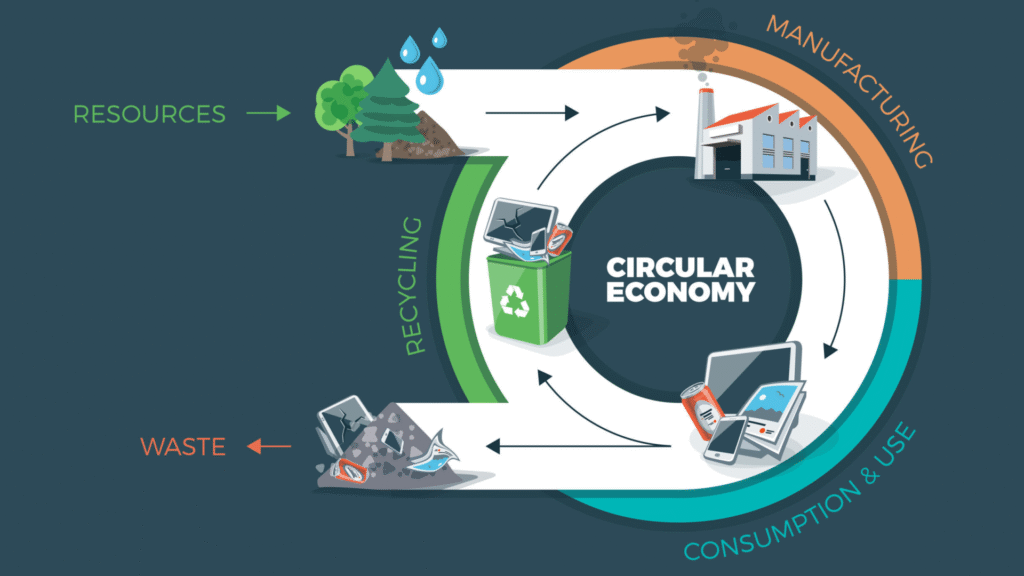The circular economy is rapidly gaining momentum as a transformative solution to the global waste crisis. Unlike the conventional linear model of “take, make, dispose,” the circular economy emphasizes reducing waste, reusing materials, recycling resources, and regenerating ecosystems. This model encourages designing out waste from the outset and creating closed-loop systems that minimize environmental impact. Leading global organizations estimate that adopting circular economy principles could reduce industrial waste by up to 90% and cut global greenhouse gas emissions significantly, making it a key strategy in addressing both pollution and climate change.
Countries like the Netherlands, Finland, and Japan have integrated circularity into national policies. They focus on sustainable product design, material recovery, eco-design, and extending the lifecycle of consumer goods. Multinational companies are also making bold commitments. For example, Apple now uses 100% recycled rare earth elements in components like the Taptic Engine of iPhones, while Unilever aims to make all of its plastic packaging fully reusable, recyclable, or compostable by 2025. These initiatives align with the UN Sustainable Development Goals, particularly Goals 12 (Responsible Consumption and Production) and 13 (Climate Action), which advocate sustainable resource management.
In India, managing waste more responsibly is both a challenge and an opportunity. With over 62 million tonnes of waste generated annually, only a small fraction is efficiently recycled. Government efforts such as the Swachh Bharat Mission and the implementation of the Plastic Waste Management Rules have brought attention to the issue. But a circular economy approach offers a more integrated and systemic solution. Cities like Indore and Pune are experimenting with decentralized waste segregation and bio-composting, showing promise for scalable urban models and local innovations. Moreover, the Indian Startup ecosystem is seeing the rise of circular business models, such as waste-to-energy and plastic upcycling ventures.
Adopting circular economy strategies globally and locally is not just an option— it is an imperative for building resilient, low-carbon societies. With the right mix of policy, innovation, and public participation, circularity can turn the waste problem into a sustainable opportunity.

